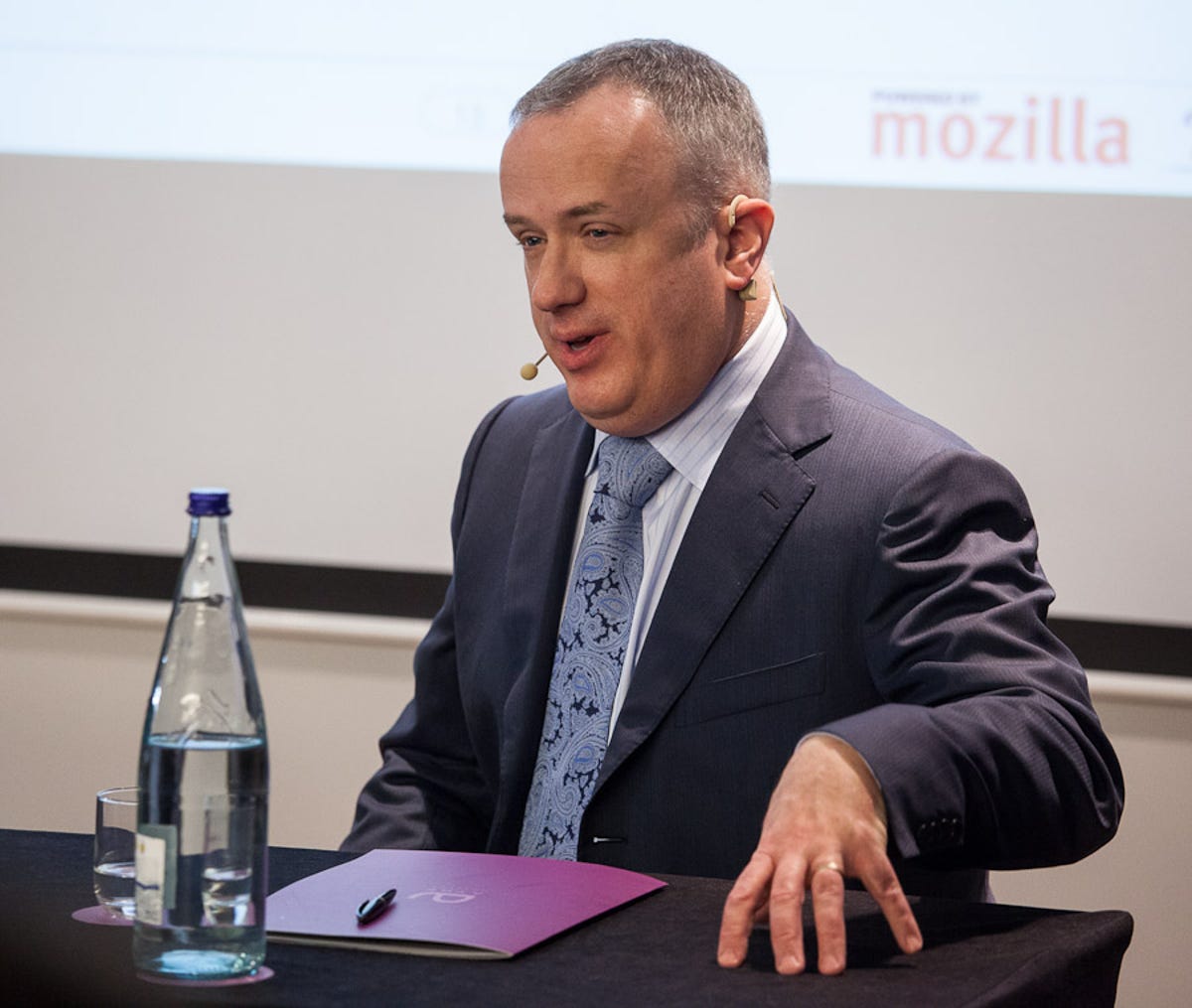BARCELONA–Half of Telefonica’s customers are in Latin America, where smartphones are scarcer than in wealthier parts of the world. But the mobile network operator hopes Mozilla’s new browser-based operating system, B2G, will change that.
“What we’re selling the most in these countries is feature phones, which is ridiculous, said Carlos Domingo, Telefonica Digital’s director of product development and innovation, in an interview at the Mobile World Congress show here in Barcelona, Spain. “We think we can bring smartphones to the masses in developing countries with this approach.”
How affordable, exactly? The B2G phone will be “ten times cheaper than an iPhone,” Domingo said.
At a press conference today to announce the Telefonica pact with Mozilla, Domingo demonstrated the reference phone with a 480×320 pixel screen performing a number of mobile phone tasks with its browser-based interface. He put a call through to another phone, sent and received text messages, won a score of 317 at the HTML5 test Web site, and played two lightweight games, and read a Frankenstein e-book.
The carrier plans to sell its first phones with B2G, which it will brand with the Open Web Devices (OWD) name, this year, he said. Mobile chip maker Qualcomm is supplying reference hardware for the devices–lower-end hardware that the B2G allies say will seem faster because of a leaner software foundation. And in a related announcement, Deutsche Telekom also is involved in B2G.


Stephen Shankland/CNET
“Deutsche Telekom’s Innovation Labs will join the “Boot to Gecko” project with dedicated development resources, and is evaluating further steps based on our common experience,” Mozilla said. The non-profit organization didn’t announce any handset makers, however, though Qualcomm is supplying the reference design using its chips.
Mozilla faces major challenges with B2G, including the difficulties of attracting carriers, handset makers, developers, and ultimately customers. Android and iOS are deeply entrenched in the industry, their app stores and developer relationships are strong, and their customer base is mammoth. But Mozilla has one big edge with B2G: It’s a browser, so a huge number of developers already are on board.
B2G stands for Boot 2 Gecko; Gecko is the engine that renders Web pages and runs Web apps in Firefox. B2G adds lower-level Linux fundamentals and a higher-level home-screen interface to form an open-source mobile operating system that runs Web apps, not the traditional native apps of iOS and Android. B2G just has to run a browser, which Mozilla Chief Technology Officer said frees up hardware resources.
The result, Domingo said, is a phone with a 600MHz processor — less than half the clock rate of higher-end smartphones — that’s good enough to run casual games if not necessarily first-person shooters with fast-action 3D graphics.
Accompanying B2G is the Mozilla Marketplace, which will open later this year to handle app store needs of discovery and app sales. Domingo said the the market will support carrier billing, in which charges appear on the mobile phone bill, a key requirement for markets where customers often don’t have bank accounts, much less credit cards.



